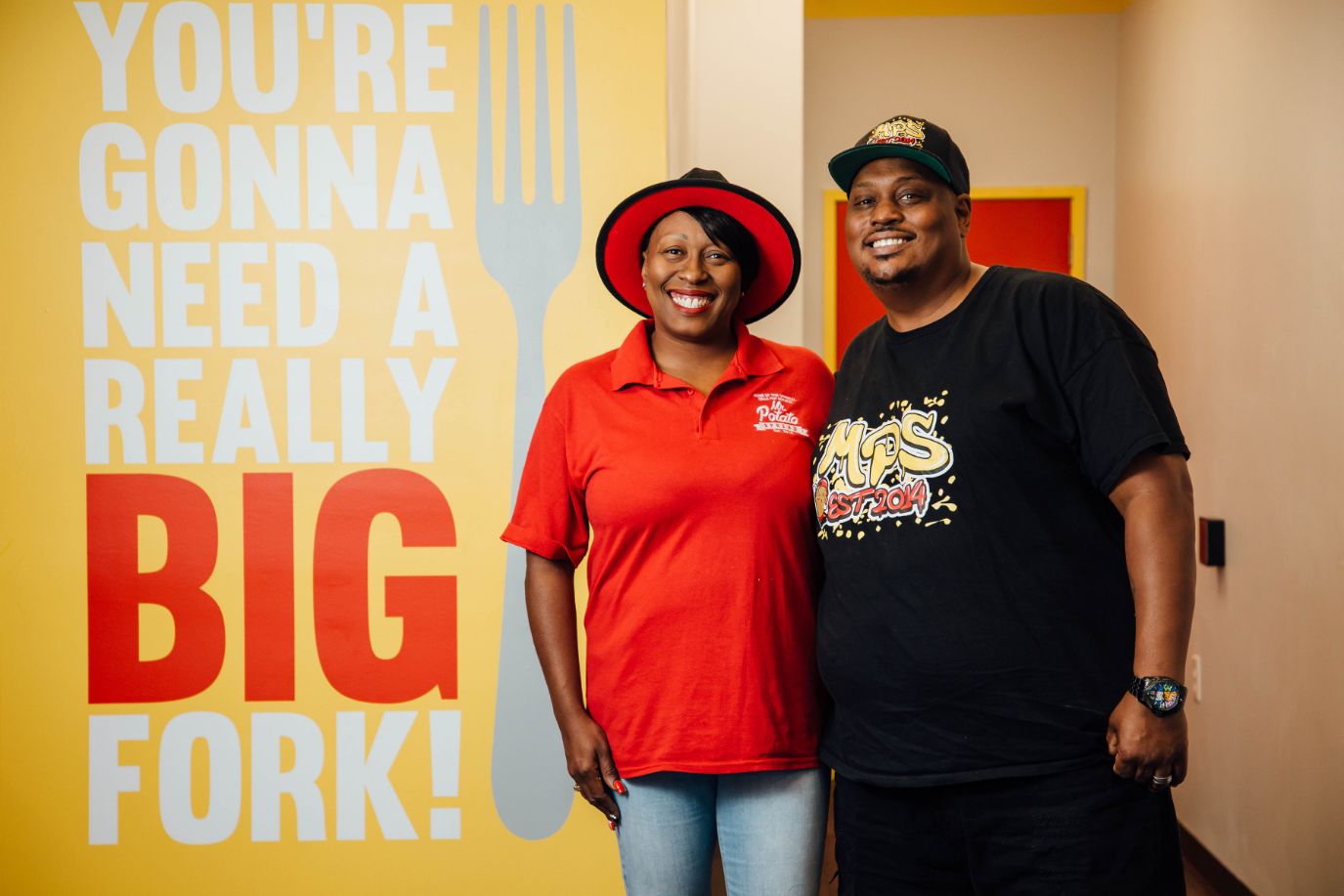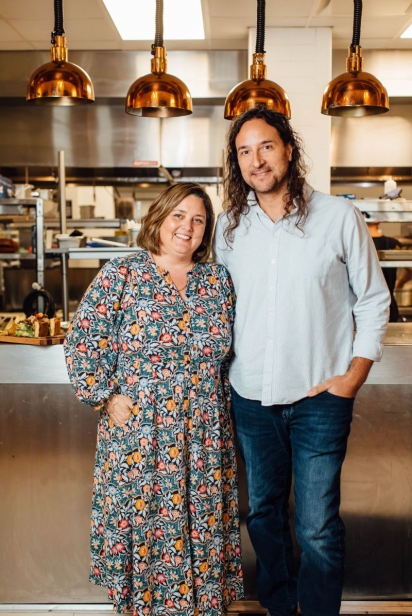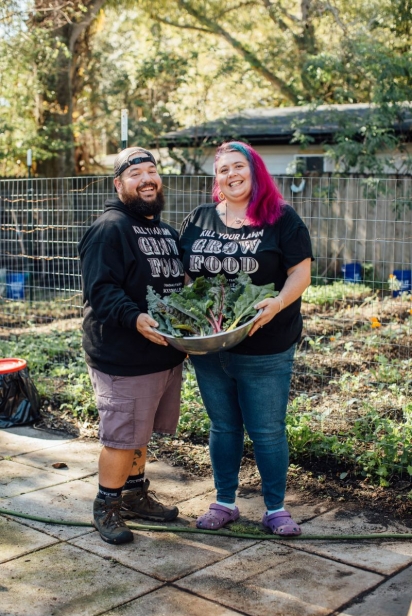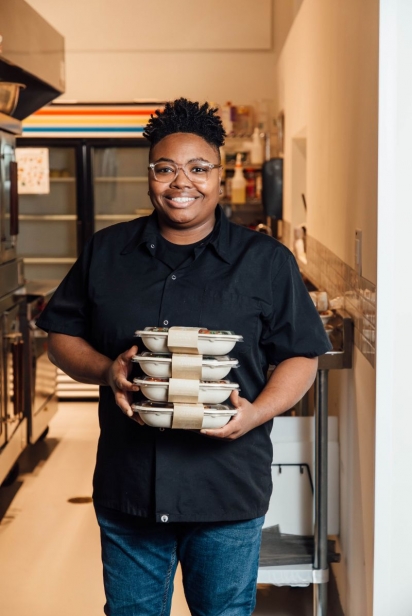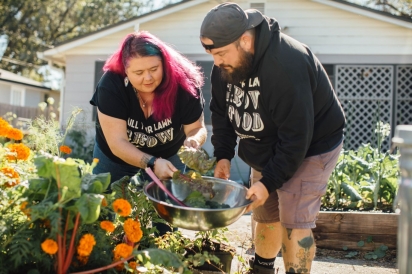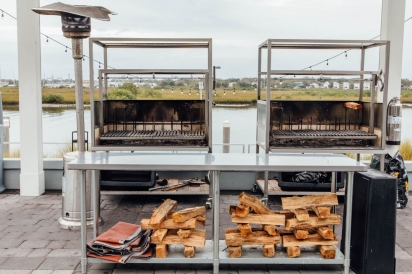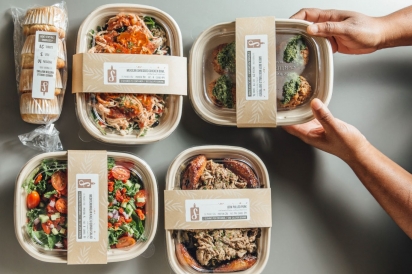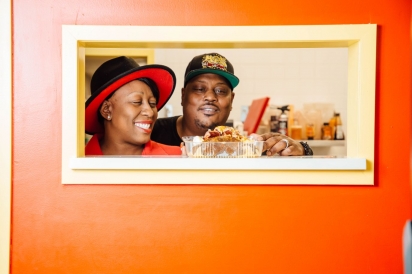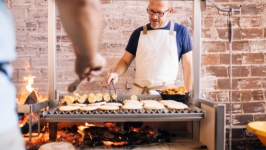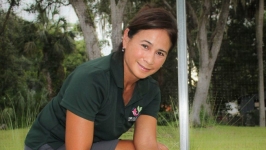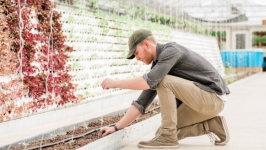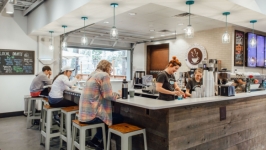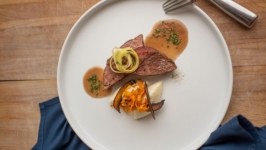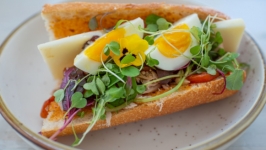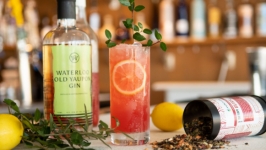Made-to-Order Food Careers
There’s a palpable culture shift taking place in the food industry, with diverse experiences calling those who love preparing food to the table. We are seeing the need not just for sustainable ingredients, but sustainable relationships amongst those who work together to grow, make and sell food. The ability to put family and well-being at the heart of their mission is encouraging a new wave of food entrepreneurs to emerge on the local hospitality scene.
Around 2008, based in the street food cultures of Latin America and Southeast Asia, the number of food truck entrepreneurs swelled from LA and the West Coast across the country. Locally, Aaron and Lakita Spann jumped on the food truck bandwagon in 2014 when they launched their business, Mr. Potato Spread, in Jacksonville, out of a desire to spend more time with their family. Their combined experience – his more than 20 years as a cook and hers as a small business consultant – coupled with the unique offering of their crab pot stuffed baked potato hit a home run with fans looking for comfort food in a portable package.
“After a lot of research and testing we decided to move forward with delivery services to local businesses and their employees,” says Lakita. “This helped us determine exactly who our customers were, where they were located and what they liked/disliked. After doing delivery for 2 years, we had a ton of data and moved forward with our food truck.” This kind of foresight in developing a business plan is often lacking in startup restaurants, but has been key to the Spanns’ success, with their business now growing into brick and mortar and franchise locations.
In 2020, while the COVID-19 pandemic confined us to our homes, restaurants had to temporarily close their dining rooms. The loss of revenue to the food and beverage industry led many to forecast the end of restaurants as we know them. Business owners who couldn’t pivot to take out, delivery or catering services lost ground. Nick and Christie Carrera of Urban Asado in St. Augustine were fortunate to already be working with an outdoor cooking model that encouraged people to continue gathering and grilling together.
“The pandemic was the worst thing to happen at the best time: first quarter 2020 was already eclipsing our expectations; our asados were also gaining in popularity and we were able to have more of an impact in our community,” Nick says. “It really signaled to us that our goal of being about more than a product was being realized. I don’t think that would have been possible without Christie and I both being so involved in the business, and being able to draw from our individual perspectives to come up with solutions or strategies.”
As for opening AsadoLife restaurant in the midst of all the challenges faced by the hospitality industry? “For a couple of years we had been interested in expanding our concept to include complementary products and services,” says Nick. “We were exploring a couple of opportunities and locations when we were contacted about the restaurant. Aside from the gorgeous view, the restaurant layout is ideal for both what we are doing now, and what we have yet to come.”
In Murray Hill, Mikey Howell and Chandra Lukas also combined their talents to form Chandanko Farms. What started as Chandra’s windowsill microgreens project is now an urban farm business where she has utilized her cooking skills to offer value-added food products. Mikey points to his interest in growing plants as one of the most fulfilling hobbies he had. “I immediately felt the therapeutic value of tending to a living plant,” says Mikey. They have both invested wholeheartedly in this labor of love, learning all they can through trial, error and mentorship. The couple continues to evolve their business as they table with their products at local farmers' and pop-up markets.
Finding a niche market in Jacksonville during the pandemic, SoulFULL Eats is a home meal prep business with fine dining and fitness pedigrees. Shantrell Mixson, the chef driving this venture, notes timing was key to their success: “Everyone wanted to avoid going out and to eat at home, so our model was actually perfect. I enjoyed being able to still cook and get my food into the hands of people that would enjoy it,” says Mixson. “We have designed the SoulFULL menus to be healthy but approachable and never lacking in flavor, so that healthy eating is sustainable and enjoyable,” says her business partner Amy Saltmarsh. “Our biggest demographic seems to be new parents – we think adding a new family member is stressful and our services allow parents to take some pressure off!”
A lot of blood, sweat and years goes into the age-old model of building a food business, with long hours on your feet and most holidays spent at work, away from family. While we may not see the “death of the restaurant” anytime soon, what is taking precedence now is a better work/life balance for those who find their passion in making and serving food. These days, entrepreneurs are carving out customized careers beyond traditional models, creating a recipe for success along the way.


